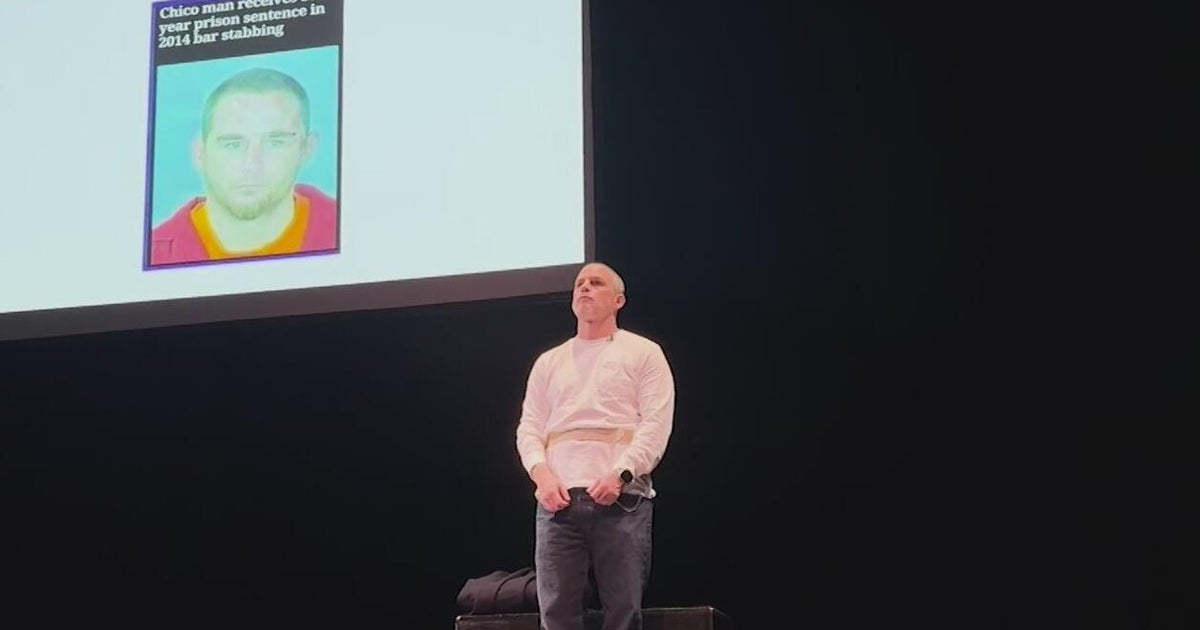Bay Area lab utilizes AI in search for next effective weight loss drug
As artificial intelligence continues to evolve, especially here in the Bay Area, one lab is working to use AI technology to find the next effective weight loss drug.
Richard Yu has always been passionate about science and technology.
"Being able to find these really rare drugs that can give you the beneficial effects without some of the side effects. And that really is about finding drugs that can activate certain parts of your body while avoiding activating other parts on other cells," Yu, the co-founder and CEO of Abalone Bio, told CBS News Bay Area.
He, along with his staff of scientists, are generating billions of yeast cells out of his biotech lab in Emeryville.
Yu's mission is to discover new drugs, including a weight-loss drug without the common side effects.
As medications like Ozempic and Wegovy are becoming more popular, he is researching a drug that can only bind and activate in certain parts of your body without producing unwanted symptoms.
"It can turn on neurons that make you feel full, and you eat less, which is generally how drugs like the GLP-1 drugs work. But in our case, we're going to do that much more specifically so we're not activating the neurons that also give you diarrhea or nausea," Yu said.
He added that he is using AI technology to help with his drug discovery process.
"It sifts through hundreds and millions and billions of antibody sequences and learns that often very non-intuitive combinations of those different sequences and how to combine them," Yu said.
"What we're doing is looking for even much rarer molecules, much rarer antibody molecules that can do special things. They can interact with cells in very specific ways that can turn on or off different biological processes," he added.
CBS News Bay Area talked to one medical expert who cautioned people to be more mindful when it comes to weight-loss medication.
"There is no quick development of a drug. Yes, there are some things that can be done faster these days. But ultimately, every single drug will have a side effect and it's a matter of which one has the best safety profile, which one has the best efficacy profile. And it's been very hard to develop effective weight-loss drugs and it will continue to be difficult to develop new types of drugs," said Dr. Dan Azagury, the director of Stanford Lifestyle and Weight Management Center.
Azagury adds that while surgery remains the most effective therapy for weight loss, drugs can help but will not work alone.
"The tip is, find a reputable provider that can explain all the options and that can manage the treatments in a way that is tailored to you, and that will be the most helpful for each specific patient," Dr. Azagury said.
He also said with more weight-loss medications becoming more popular to the average person, it's important to take a step back and assess all options that are best catered to your health.
"There is still a lot of education that needs to be done," the expert said. "It definitely changed the mindset of patients overall. And they're starting to think about, 'oh maybe it is appropriate for me to talk to my doctor about it,'" Dr. Azagury said.
Meanwhile back at Abalone Bio, Yu, a lifelong scientist, said his journey may take more than 10 years to develop the drugs. He is also working on medication for inflammation, while also assisting in cancer research.
"What we want to do is make sure we can make drugs that can access that other population that can't take those other drugs so they can benefit from these," Yu said.
Abalone Bio is also working with the University of Pennsylvania to continue the discovery process of these new drugs.
"Do something that can help increase human welfare and reduce human suffering," Yu said.







